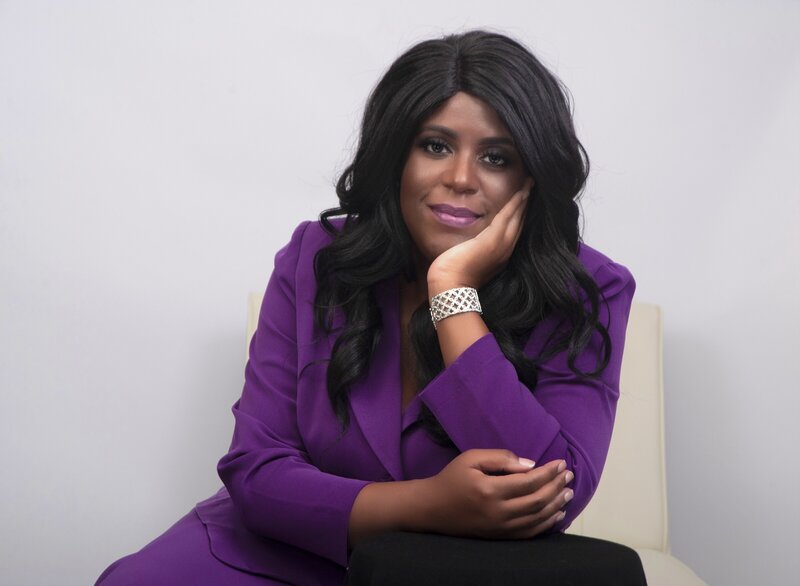May 20, 2024
“Jasmine”, a dynamic mid-career woman, is usually the first to arrive and the last to leave her office. Lately, Jasmine finds herself staring blankly at her computer screen more often, her coffee growing cold beside her. These are clear signs of job burnout, and the creeping fatigue feels almost like a heavy cloak she can’t seem to shed.
Not long ago, she was the powerhouse of her team, always ready with innovative ideas and a contagious enthusiasm. But now, something has shifted. The excitement has dimmed, replaced by a persistent weariness that accompanies her both in and out of work.
Burnout sneaks up like this, subtle yet overwhelmingly stifling, especially for women like Jasmine who are seasoned in their careers. It’s a state of emotional, physical, and mental exhaustion caused by prolonged stress. For many Black women navigating the unique complexities of their professional landscapes, burnout isn’t just a buzzword—it’s a significant barrier to their well-being and career advancement.
In this blog, we’ll delve deep into understanding the signs of job burnout. We aim to empower you with not only the knowledge to spot these warning signals but also the tools to step back from the brink, reclaim your energy, and continue forging a path that fulfills both your personal and professional aspirations.
Recognizing the Early Signs of Job Burnout at Work
Burnout often starts quietly, not with a bang but a whisper. For many, it begins with the feeling of exhaustion that doesn’t go away with a good night’s sleep. It’s the kind of tiredness that sinks into your bones, unrelieved by rest, making every day at work feel like a marathon.
Jasmine, for example, started noticing her diminishing enthusiasm for projects she once led with passion. Her weekends, previously reserved for rejuvenation, now barely seemed to scrape the surface of her fatigue. She found herself feeling less capable and more cynical, questioning whether her efforts were even worth it.
Consider the metaphor of a candle burning at both ends, where both your energy and spirit diminish, leaving you feeling hollow. If you find yourself feeling irritable more often, struggling to concentrate, or feeling disillusioned about your job—these could be your early whispers of burnout.
By recognizing these signs early, you stand a better chance of addressing them before they escalate. This initial awareness is crucial in setting the stage for a healthier work-life balance and ensuring that your career remains both sustainable and satisfying.
Understanding Symptoms of Burnout
What Exactly is Burnout?
Burnout goes beyond the typical stress we face at work. It is a deeper, chronic emotional and physical exhaustion that permeates every aspect of your life. Unlike simple stress, which can be a temporary and sometimes motivating state, burnout depletes you, leaving a sense of dread and emptiness. This profound fatigue goes beyond needing a break—it’s a complete system shutdown.
Symptoms that Speak Volumes
Signs of job burnout manifest both psychologically and physically. Mentally, it may begin as a seed of doubt about your capabilities, growing into a forest of negative thoughts and feelings. Physically, it might start subtly—a headache, a backache, disturbed sleep—before escalating into chronic ailments. These symptoms together form a barricade that stifles your personal and professional growth.
A Closer Look at Signs of Job Burnout in Black Women
For Black women, burnout isn’t just a personal crisis. It’s compounded by societal expectations. The myth of the “superwoman” who can handle everything without faltering often leads to their struggles going unnoticed. How often do societal views on Black women’s strength contribute to burnout flying under the radar? Many times, it is only when breaking points are reached that the full extent of their exhaustion becomes visible.
Voices from the Field
Consider the story of “Moneca,” a former client, who spent years juggling high expectations at work with family responsibilities. Her colleagues praised her resilience, never seeing the emotional toll it took. Monica’s experience is a stark reminder of how burnout can brew beneath a surface of competence and strength.
Common Signs of Burnout in Black Women
Beyond the Surface of Emotional Exhaustion
One of the most telling signs of burnout is emotional exhaustion. This is not just feeling overworked. It’s feeling completely drained, as if no amount of rest suffices. When every day feels like a mountain to climb in a storm, it’s a sign that burnout is taking hold.
Detachment from Work: A Double-edged Sword
Cynicism and detachment often follow, where once there was passion and commitment. This isn’t merely disliking your job; it’s a profound disconnection that makes every workday feel like a battle. It’s the emotional armor that those experiencing burnout don layers thick.
When Achievement Feels Out of Reach
Feelings of ineffectiveness and lack of accomplishment are painful indicators of burnout. Imagine working day in and out, yet feeling like you’re running on a treadmill—lots of effort, no destination. This disillusionment is especially disheartening for those who once measured their worth through their professional successes.
Misinterpretations and Missed Signals
Are these signs just bad days, or are they cries for help? Often, what is dismissed as a rough patch might be the early whispers of burnout. For instance, “Tanya,” another client, shared how her continuous “bad days” were actually a mosaic of burnout symptoms, overlooked by her and those around her until she reached out for support.
These narratives and insights shed light on the unique battles against burnout faced by many women. Recognizing these signs is the first step toward healing and prevention. As we continue to explore this topic, remember that understanding and addressing burnout is crucial for sustaining not only your career but also your zest for life.
Risk Factors for Burnout in Black Women
Navigating the Professional Maze
Job burnout doesn’t occur in a vacuum. For many women, it’s the result of navigating a maze of systemic challenges that often seem designed to exhaust even the most resilient. Understanding these risk factors is crucial to addressing the root causes of burnout.
Workplace Discrimination and Microaggressions
Every day, subtle comments, overlooked contributions, or outright dismissals can chip away at one’s professional facade. These microaggressions act like a thousand tiny cuts, each one seemingly insignificant but collectively draining. This constant need to guard oneself against bias adds an exhausting layer to everyday tasks, making the professional environment a battleground where one must always be armed.
The High Cost of Proving Oneself
Often, the pressure to prove oneself can lead to taking on unfair workloads. This isn’t just about working harder but also about continuously proving one’s worth in a way that can feel like running an endless race. Each additional task becomes a double-edged sword: necessary for proving competence but at the same time a potential trigger for burnout.
The Solitude of Standing Alone
Lack of supportive networks or mentors in the workplace can leave you feeling isolated. Without allies or advocates, navigating career challenges can become a lonely journey, intensifying feelings of being overwhelmed and unsupported.
The Disproportionate Burden
How do these factors disproportionately affect women compared to their peers? The answer lies in the compounded pressures of dealing with both racial and gender biases, which can exacerbate the stressors and quicken the onset of burnout.
Evidence from the Front Lines
Studies and reports consistently highlight workplace inequality, showing how these environments foster an increased risk of burnout. For instance, according to Women in the Workplace 2023, women, particularly of color, are more likely to report high levels of burnout, primarily due to discrimination and unequal treatment in professional settings.
Strategies to Prevent and Manage Burnout
The Art of Boundary Setting
Setting boundaries is essential for managing workloads and expectations. It’s about protecting your time and energy by defining what you will and will not tolerate. Far from being a sign of weakness, boundary setting is a testament to one’s strength and self-respect.
Seeking Professional Guidance
Recognizing when to seek help is a crucial step in preventing burnout. Whether it’s coaching, therapy, or simply talking to a mentor, professional support can provide the tools and perspective needed to navigate through challenging times.
Cultivating Community
Building a supportive community, both professionally and personally, creates a buffer against the isolating effects of burnout. This network acts as a sounding board, providing both emotional support and practical advice.
Practical Daily Routines
Integrating simple routines, such as regular breaks during the workday or designated times for relaxation and self-care, can profoundly impact mental health and overall well-being. These practices help maintain a balance that keeps the specter of burnout at bay.
By understanding these risk factors and implementing strategic prevention methods, individuals can protect themselves from the detrimental effects of burnout. These strategies not only enhance professional success but also contribute to a more fulfilling and balanced life.
Wrapping It Up
Recognizing the Warning Signs
As we’ve explored throughout this discussion, burnout is a complex condition that manifests through various signs, from emotional exhaustion and cynicism to feelings of ineffectiveness and detachment. Recognizing these early signs of burnout is crucial for initiating timely interventions. It’s about noticing when your professional zeal begins to wane, when fatigue becomes a constant companion, and when your achievements no longer bring joy.
Take Action Against Burnout
If you find yourself identifying with the symptoms we’ve discussed—whether it’s the emotional drain, the creeping detachment from your work, or the overwhelming sense of ineffectiveness—it’s important to take action. Burnout doesn’t improve on its own; instead, it requires intentional steps to recover from burnout and regain your vitality.
Schedule Your Free Consultation
Don’t wait for the situation to worsen. Evaluate your current professional and personal life. If you see the signs of burnout weaving through your days, consider seeking help. As part of your recovery journey, you’re invited to schedule a 30-Minute V.I.P. Roadmap session. This session is a step towards understanding your challenges and crafting a path to recovery and renewal. Let’s work together to find solutions that restore your balance and help you thrive in both your career and personal life.
Recognizing and addressing burnout is not just about recovering what’s been lost; it’s about creating an environment where you can thrive and succeed without sacrificing your well-being. Remember, taking the first step towards seeking help is a sign of strength and commitment to your own health and success.

I’m an ICF Professional Certified Coach (PCC) and executive coach for Twanna Carter Professional & Personal Coaching, LLC. I flubbed my first career transition from the military so badly, it took me the next 10+ years to build my confidence and recover. I know what it feels like to struggle with imposter syndrome and uncertainty about my worth in the workplace. It’s why I am dedicated to empowering Black women. Helping them navigate change and uncertainty by providing them with the tools and strategies they need to be successful. Schedule a 30-Minute V.I.P. Roadmap session today.
Curated Reads: Essential Books to Add to Your Personal Library
- Melaninated Magic: 180 Affirmations to Nurture Your Soul and Unleash Your Black Girl Joy by Twanna Carter, PhD
- I’m Not Yelling: A Black Woman’s Guide to Navigating the Workplace (Successful Black Business Women), Elizabeth Leiba
- Stop Overthinking: 23 Techniques to Relieve Stress, Stop Negative Spirals, Declutter Your Mind, and Focus on the Present (The Path to Calm) by Nick Trenton
- Influence: The Psychology of Persuasion by Robert B. Cialdini
- How to Win Friends and Influence People by Dale Carnegie
- High-Functioning Anxiety: A 5-Step Guide to Calming the Inner Panic and Thriving by Dr. Lalitaa Suglani
- “Quiet: The Power of Introverts in a World That Can’t Stop Talking” by Susan Cain.
- Unleash your career potential with our free library of resources. Access our free Career Resource Library today and start your journey to a more fulfilling career.
- Taming Your Gremlin: A Surprisingly Simple Method for Getting Out of Your Own Way by Rick Carson
- The Confidence Code: The Science and Art of Self-Assurance—What Women Should Know by Katty Kay & Claire Shipman
- Stop & Shift: The Mindset Reset that Changes Everything by Karen Allen
- Unapologetically Ambitious: Take Risks, Break Barriers, and Create Success on Your Own Terms by Shellye Archambeau
Read My Latest Blogs…
- 10 Transformative Low-Effort Relaxation and Micro-Breaks for Women ExecsThe Hidden Power of Small Pauses If you’ve ever felt like your day moves at lightning speed, from back-to-back meetings to decision-heavy leadership moments,… Read more: 10 Transformative Low-Effort Relaxation and Micro-Breaks for Women Execs
- Why Knowing Your Strengths Is the Shortcut to Landing the Right RoleUnderstanding the Concept of “Landing the Right Role” For many professionals, career advancement often feels like a never-ending climb. Yet, success isn’t merely about… Read more: Why Knowing Your Strengths Is the Shortcut to Landing the Right Role
- Career Change at 40. How to Reinvent Yourself and Thrive in a New ProfessionWhy 40 is the Perfect Age for a Career Change Turning 40 can feel like standing at a crossroads. You’ve accumulated two decades of… Read more: Career Change at 40. How to Reinvent Yourself and Thrive in a New Profession
- The Complete Guide to Career Transition Coaching for Black Women LeadersRedefining Leadership and Transition in the Modern Era For many Black women leaders, career transitions aren’t simply about moving from one role to another.… Read more: The Complete Guide to Career Transition Coaching for Black Women Leaders
- 17+ Proven Steps for a Smooth Career ChangeWhy Changing Careers Is a Smart Move in Today’s World In today’s fast-changing job market, more people than ever are rethinking their career paths.… Read more: 17+ Proven Steps for a Smooth Career Change
- Why Career Uncertainty Silently Shrinks Earning Power of Black WomenUnderstanding Career Uncertainty in Modern Professional Life Career uncertainty isn’t just confusion about what to do next. It’s an emotional fog that clouds ambition,… Read more: Why Career Uncertainty Silently Shrinks Earning Power of Black Women
- Why Black Women Fail at Career Pivots. Barriers and Pathways to SuccessThe Harsh Reality of Career Pivots for Black Women Right now, more than 300,000 Black women in the U.S. are out of work, a… Read more: Why Black Women Fail at Career Pivots. Barriers and Pathways to Success
- 7 Powerful Strategies to Brand & Thrive After a Layoff A Stark Reality. Over 300,000 Black Women Have Been Laid Off More than 300,000 Black women have been laid off since President Trump’s return… Read more: 7 Powerful Strategies to Brand & Thrive After a Layoff
- Personal Branding for Black Women Who Are Invisible. A Transformative GuideThe Power of Personal Branding for Visibility Invisibility is exhausting and Black women know it better than anyone else.Every meeting, every boardroom, every industry… Read more: Personal Branding for Black Women Who Are Invisible. A Transformative Guide
- The Worker Bee Trap for Black Women Executives. How Over-performance Keeps Us InvisibleWorker Bee. The Hidden Trap Behind “Hard Work Pays Off” Growing up, many of us were taught the same lesson: If you work twice… Read more: The Worker Bee Trap for Black Women Executives. How Over-performance Keeps Us Invisible
- Why Storytelling is Your Secret Weapon for the C-SuiteWhy Women Executives Need Strategic Storytelling As women executives, we know how vital it is to shape our narrative and own our stories. But… Read more: Why Storytelling is Your Secret Weapon for the C-Suite
- 3 Branding Mistakes That Sabotage Successful Black Women LeadersWhy Personal Branding Matters More Than Ever Visibility Equals Value As a Black woman in leadership, your excellence is undeniable. But it isn’t always… Read more: 3 Branding Mistakes That Sabotage Successful Black Women Leaders













![Black women executive using storytelling with her team; Why Storytelling is Your Secret Weapon for the C-Suite; find Black executive story; executive coaching for Black women; best Black executive coach NY, best executive career coach near Maryland; find Black executive coach near TX; hire personal branding consultant for black women executives, branding audit services for black female founders, branding strategy package for women of color in business, personal branding coach for black women leaders, fix my executive brand [for black women], rebranding agency for black women-led companies, LinkedIn profile rewrite service for black female executives, corporate headshot photographer specializing in black women professionals, speaker branding package for black women keynote speakers, employer branding consultant for diversity & inclusion,](https://twannacarter.com/wp-content/uploads/2025/08/Why-Storytelling-is-Your-Secret-Weapon-for-the-C-Suite_Twanna-Carter-150x150-png.webp)
![successful Black woman executive standing next to a desk; 3 Branding Mistakes that Sabotage Black Women_Twanna Carter; how to recover from a branding mistake as a black female executive, rebranding strategy after a business mistake black women, fixing a weak personal brand as a woman of color in leadership, managing online reputation for black women executives, how to position myself as an industry expert [black woman], overcoming invisibility as a black woman in corporate america; building authority and credibility as a black female leader; branding for black women who want board positions; how to communicate my value as a black woman executive, personal branding for black women seeking c-suite roles,](https://twannacarter.com/wp-content/uploads/2025/08/3-Branding-Mistakes-that-Sabotage-Black-Women_Twanna-Carter-150x150-png.webp)







+ show Comments
- Hide Comments
add a comment